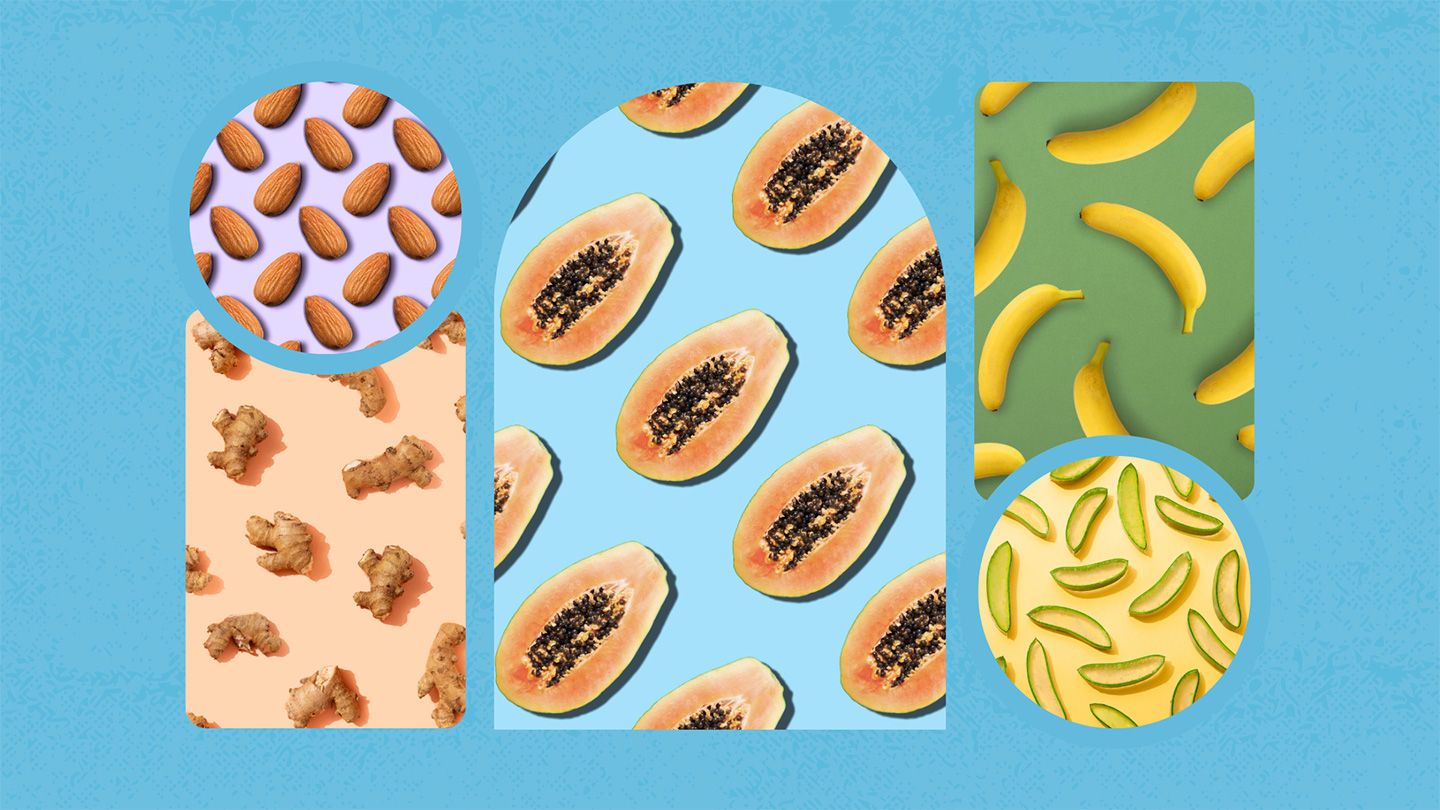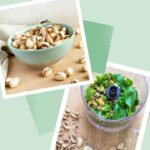While the research and expert opinions on the benefits of a low-acid or no-acid diet are mixed, you may want to try the foods below and keep a record of what helps ease your symptoms.
Bananas
Bananas are low-acidic, or alkaline, foods that can neutralize stomach acid. Not only are they delicious, they’re also high in a type of fiber called pectin, which helps move food along the digestive tract. This prevents food from lingering in the stomach, thus reducing gastric acid.
Bananas also have a soothing texture that protects the lining of the stomach and esophagus against acid reflux.
Salmon
Salmon is a low-acidic food and an excellent source of lean protein. Lean proteins may help support the lower esophageal sphincter and reduce heartburn symptoms.
Plus, salmon may bring the added benefit of reducing inflammation because it’s rich in omega-3 fatty acids. A reduction in intestinal inflammation may also reduce GERD symptoms.
Brown Rice
Serve your salmon with a side of brown rice — a common staple of low-acid diets for GERD. Fiber-rich whole grains like brown rice can help people with GERD better manage their symptoms, probably because fiber helps improve digestion and reduces acid reflux. Brown rice is also low in acid.
Papaya
Papayas contain an enzyme called papain. Papain aids digestion and helps break down other foods. Also, papayas are low in acid. So, next time you’re looking to stock up your crisper drawer, consider buying some ripe papaya. Papaya juice can also help support digestion and reduce acid reflux.
Ginger
Ginger is another low-acid food with great potential to reduce acid reflux. Ginger reduces inflammation, which may help reduce acid reflux, too. It’s also soothing for your digestive tract, making it a popular choice in traditional medicine for gastrointestinal issues.
Use ginger to cook a delicious curry, sprinkle some raw ginger over your breakfast oats, add it to juices or smoothies, or make ginger tea. Some studies suggest that this versatile plant can relieve heartburn.
Yogurt and Other Probiotics
Yogurt is a great addition to your reflux diet. It’s a low-acidic food (especially when not too sour), and it’s rich in probiotics — gut-friendly bacteria that improve your digestion. What’s more, yogurt’s cool sensation can soothe your tummy. Low-fat yogurt, in particular, is great protection against inflammation and may reduce acid reflux.
Aloe Vera
Some researchers suggest that consuming small amounts of pure aloe vera juice before meals may reduce acid reflux. This could be because aloe vera contains enzymes that help break down sugars and fats, thus promoting healthy digestion.
The evidence is not conclusive, though. “Aloe vera may have anti-inflammatory effects,” says Alexandra Rosenstock, RD, a clinical dietitian at the NewYork-Presbyterian Weill Cornell Center for Advanced Digestive Care. “There is very limited evidence that it may help acid reflux symptoms — insufficient to recommend it. Aloe may be irritating to the intestine, particularly if it contains anthraquinone, which acts as a laxative and is found in the latex.”
Small quantities of aloe gel taken orally for a short time may be safe, she says, although she also emphasizes the lack of evidence to support the use aloe vera in the long term.
Lean Meats
Lean meats (such as skinless turkey or chicken) may help some people with acid reflux. “In people who feel best eating a lower-fat diet, lean meats are a good alternative to fattier cuts of meat, which may worsen these symptoms of reflux,” says Rosenstock.
These foods may be better tolerated because they’re low in fat. Foods high in fat can also slow down digestion, which may cause the food to stay for longer in the digestive tract, worsening heartburn symptoms.
How you cook the meat matters. “It would be recommended to steam, lightly sauté, bake, or grill foods versus frying to limit their fat content,” says Rosenstock.




